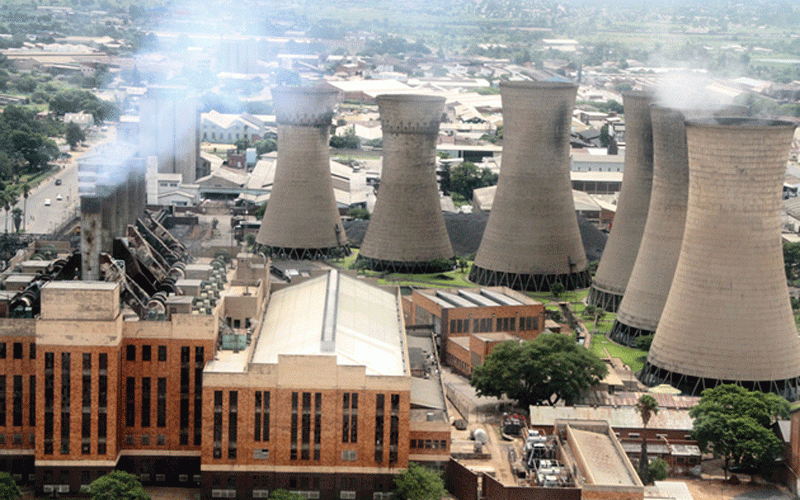
Domestic GDP growth is projected to slow from 4% in 2022 to 3,8% in 2023, sustained primarily by mining, agriculture and enhanced activity in the manufacturing, wholesale and retail trade sectors.
The deceleration has been attributed to the uncertain global economic outlook and potential adverse domestic factors.
The agricultural sector is poised for recovery owing to the normal to above normal rainfall expected in the current season.
As the agricultural sector is the cornerstone of the economy, feeding into majority of household incomes, the sector’s performance is key in improving household and disposable incomes.
According to official data, 75% of domestic transactions are denominated in foreign currency. As a result of the growing dominance of the USD in the economy, authorities resolved to measure inflation using a weighted average of goods and services priced in local currency and USD.
Inflation has decelerated from 0,7% in January to — 1,6% in February and 0.1% in March. Annual inflation has eased from 101,5% in January this year to 87,6% at the end of the quarter.
In light of the broad deceleration in inflation figures, authorities reduced the Bank policy rate and Medium Term Bank Accommodation from 150% to 140% per annum and from 75% to 70%, respectively.
While economic players had called for reduction in lending rates, a 10% and 5% reduction may not be significant enough to stimulate appetite for local currency borrowings.
- Chamisa under fire over US$120K donation
- Mavhunga puts DeMbare into Chibuku quarterfinals
- Pension funds bet on Cabora Bassa oilfields
- Councils defy govt fire tender directive
Keep Reading
Despite the slow down in official inflation figures, the local currency has depreciated against the US dollar on the parallel market.
The local currency has depreciated circa 58% against the dollar during the first quarter on the parallel market.
The parallel market premium has also widened to 61% at the end of quarter. Deceleration of the official inflation figures and interbank exchange rate hints at macroeconomic stability.
The devaluation of the local currency on the parallel market and widening of the parallel market premium, however, raise concerns as the widening premium may be detrimental to the relative stability currently prevailing.
The Zimbabwe Stock Exchange registered improved performance over the first quarter. Year to date the Zimbabwe Stock Exchange rose 98% to 38,568.48 points at the end of March.
The Top 10 Index rose 87% year to date, to close March at 12,311.13 points. Market capitalization grew 65% over the quarter from ZW$2.04tln to ZW$3.34tln.
The Victoria Falls Exchange (VFEX) continues to gain momentum, as issuers chase broadened capital sources, tax incentives and brand positioning.
Market capitalization has grown 75% year to date to US$992.88mln Moving into next quarter we expect to see more migrations to the VFEX as the theme of dollarization continues locally.
The VFEX currently has a steady pipeline of new listings. First Capital Bank and African Sun have joined the list of companies slated for VFEX migration.
West Properties Company is set to become the VFEX’s first IPO, as all listings on VFEX to date have been migrations from the ZSE.
Liquidity challenges remain a major drawback, limiting pronounced investor participation.
Resultantly, the ALSI has fallen 7% year to date, closing the month of March at 91.76 points. As the number of quality listings on the VFEX continues to grow, and the flow of USD liquidity increases in the formal economy, we anticipate improved activity on the VFEX in the medium to long term.
Global and local economic outlook remains largely uncertain as a result of high interest rate and inflation dynamics as well as uncertainty around the upcoming elections in Zimbabwe.
Due to the prevailing uncertainty, it would be prudent for investors to take position in defensive stocks, with resilient business models and stable dividend policies to hedge against value loss.
The ZSE has seen an increase in de-listings by top counters in favour of the rapidly expanding US dollar denominated Victoria Falls Exchange as the bourse continues to attract migration of big companies.
Migration of quality stocks from the ZSE to the VFEX, as opposed to new listings, may however be detrimental to the viability of the local currency denominated bourse.
Relative stability in the local economy is also fragile as the country nears elections, and navigates an uncertain global outlook.
Despite positive developments in inflation and exchange rate volatility following government measures implemented last year, the local currency has faced increasing pressure on the parallel market.
Continued devaluation of the local currency on the black market, outpacing the official exchange rate, resulting in widening of the black market premium may lead to arbitrage.
The prevailing uncertainty drives the case for investment in defensive stocks with a proven track record of performance, even in times of downturn. Investors will derive value from holding positions in counters with diverse business models, inflation hedging capabilities foreign currency generation capacity and stable dividend policies.
A general bullish sentiment is likely to prevail on the ZSE, however gains may be moderated by inflation tightening measures and liquidity constraints.
The VFEX remains a viable option for investors with USD liquidity, offering returns and value preservation in a more stable currency than the ZWL.






